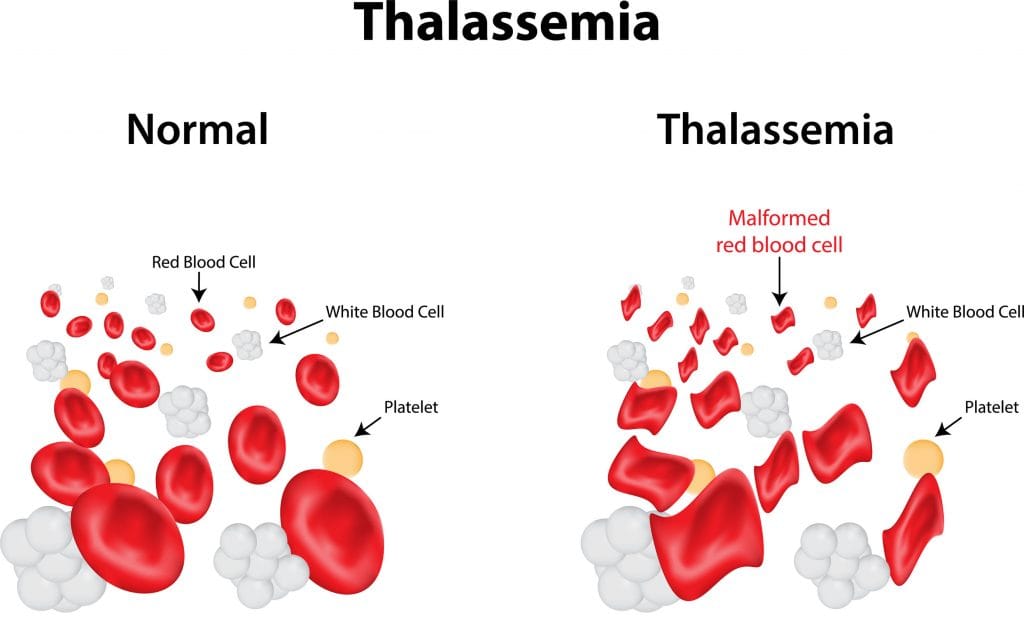India is home to more than 40 million people who test positive for thalassemia. Over 100,000 of these individuals will die before the age of twenty. Many of these deaths stem from a lack of access to treatment. Many individuals will never even be aware of the genetically inherited disease.

The condition involves up to four genes. These may either be defective due to mutation in the genome, or entirely absent. The genes code for the formation of the globin protein, part of the haemoglobin molecule responsible for transporting oxygen in the blood. Due to this the condition may often manifest as nothing more than a mild case of anaemia.
Symptoms worsen as more genes are affected. A person with only a single defective gene may show no symptoms at all. As such, they are effectively a carrier of the condition. Due to the individual being unlikely to be tested for the genes responsible for thalassemia, they run the risk of passing on the gene to their children without any awareness.
With two affected genes a person may feel lethargic, have a reduced appetite and display a jaundiced appearance. As this is a condition present from birth, delayed growth and puberty is a common feature, osteoporosis is also a notable side effect. These effects are more pronounced in a person with three copies of the gene.
Four defective genes — referred to as thalassemia major — usually results in the child being stillborn or dying shortly after birth, as their blood will not have the capacity to transport oxygen.
A lack of knowledge and testing for the condition coupled with its genetic inheritability is what causes many of these thalassemia major deaths. Two genes are inherited from each parent. Each parent may therefore only believe they have anaemia — as it is not uncommon in India — and be passing on four genes to a child, resulting in the death of the child.
Some state governments are suggesting significant prevention policies to combat the rates of thalassemia. Gujarat for example has suggested making thalassemia testing mandatory for everyone, with a focus on testing women before they give birth.
Three lakh (300,000) pregnant women were tested in across three districts in Gujarat across 2015 and 2016. During this time 186 pregnancies were terminated in which the child would have been born with thalassemia major.
More than 10,000 children are born in India with thalassemia every year. Due to their parents often not knowing they have the condition the children are often unaware in all but the most severe of cases, this means the disease may proliferate across the generations with most remaining unaware of the condition.
Mass blood tests may uncover those in the population with the disease. However this would be a vast public health endeavour and would require significant funding.

